How to Make a VPN Undetectable: Avoid VPN Blocks in 2025
Trying to avoid VPN detection tools that are becoming increasingly sophisticated is frustrating. Plus, there’s a lot of wrong information about making your VPN undetectable online. You get a VPN that ‘experts’ recommend, but it doesn’t actually work with your favorite platforms.
With the right VPN, staying below the radar can be as easy as connecting to a server. Still, even the best VPNs sometimes need tweaking to be truly effective. I’ve found 13 proven ways to make your VPN undetectable, but the best way is to use a top-tier VPN like ExpressVPN.
I recommend ExpressVPN because its feature-packed apps are preconfigured for you. Plus, all its servers have built-in obfuscation, making it harder for third parties to detect VPN traffic to block it. ExpressVPN comes with a 30*-day money-back guarantee, so you’re entitled to a full refund if you find it’s not exactly what you want. Editor’s Note: Transparency is one of our core values at WizCase, so you should know we are in the same ownership group as ExpressVPN. However, this does not affect our review process, as we adhere to a strict testing methodology.
Stay hidden online with ExpressVPN
Important: I don’t condone any illegal behavior. Using a VPN to perform illicit activities (like sharing copyrighted content or breaching your local laws) is an offense. Make sure you’re aware of local laws surrounding VPNs before you connect.
Quick Guide: 3 Easy Steps for an Undetectable VPN 2025
- Download a VPN. After running extensive tests, I recommend ExpressVPN to remain undetected as all its servers are obfuscated and disguise your VPN traffic.
- Adjust the VPN settings. Check the tips below to make sure your VPN is configured to be undetectable.
- Connect to a server. Choose an obfuscated server (if available) or one near you to start browsing without being detected or blocked.
13 Ways to Use a VPN Without Being Detected in 2025
1. Choose the Right VPN
The best VPNs have powerful security features to keep you hidden and get around blocks, including server obfuscation, data leak protection, multiple tunneling protocols, military-grade encryption, and IP address refreshing. These features work together to ensure your VPN connection can’t be detected.
After running extensive tests, my team and I found ExpressVPN is the best VPN for connecting to the internet undetected. It uses obfuscation on all servers, making every VPN connection appear as regular user traffic. It also supports Tor over VPN connections, which makes it even harder to trace ExpressVPN’s IP address.
I ran multiple leak tests to ensure ExpressVPN could hide my true IP address, as well as prevent WebRTC, IPv6, and DNS leaks. It passed every test, letting me browse the web securely and anonymously while bypassing VPN blocks.
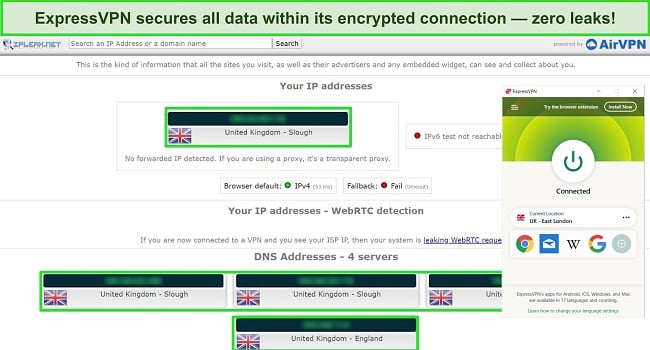
Additionally, ExpressVPN uses dynamic IP addresses, which means it rotates the IP address assigned every time you connect. This prevents you from being tied to the same IP address, if it has been blocked by a platform. ExpressVPN also constantly replaces IP addresses that have been blocked, so there’s even less chance that your connection won’t work.
2. Try a Different Server
Platforms like Netflix and Disney+ ban IP addresses and servers when they detect VPN traffic. However, it’s unlikely that all of a VPN’s servers are blocked. For example, you can choose a different VPN server within the US to get a new IP address and to continue watching your American Netflix library. Most premium VPNs regularly refresh their IP addresses to avoid detection.
3. Switch Tunneling Protocol
Most often, your VPN will automatically choose the best option for your connection. However, if you’re blocked, try switching protocols to see if that fixes the issue. There are multiple tunneling protocols to choose from when connecting to a VPN.
- OpenVPN: Best for security on desktop and mobile — dependable and considered the benchmark for protocols with rapid connection rates and strong security. But it’s not immune to targeted attacks.
- WireGuard: Best for streaming, gaming, and torrenting on desktop and mobile — exceptionally fast and secure. It’s newer, open-sourced, and very lightweight (just 4,000 lines of code compared to OpenVPN’s 70,000), so vulnerabilities are easily found and fixed.
- Lightway: Fast and secure protocol (rivals OpenVPN and WireGuard) — ExpressVPN’s proprietary and default protocol. It’s ideal for secure online activity, streaming, torrenting, gaming, and more.
- IKEv2/IPSec: Best for speed on mobile devices — provides stable connections for network changes or unreliable internet. However, it only uses port 500, making it very easy to block and not ideal for bypassing firewalls and other restrictions.
- SSTP: Good at bypassing firewalls using port 443 — can be easily configured on Windows devices and provides robust encryption to bypass censorship. However, SSTP may have potential vulnerabilities to man-in-the-middle attacks, which makes it less suitable for transferring sensitive data.
- L2PT/IPSec: Double encapsulation for extra security —supports most platforms and is compatible with high-level encryption, but it could face man-in-the-middle attacks and is much slower than other protocols.
- PPTP: Standard VPN protocol in the past — Fast, but it doesn’t have strong security features to avoid being blocked.
4. Change Encryption Level
All the best VPNs in 2025 use AES (Advanced Encryption Standard) 256-bit, the same kind of encryption used by the US military to protect secret information. AES hasn’t been cracked to date, making it one of the most secure ciphers available. The drawback is that the process of encrypting and decrypting data using AES 256-bit takes longer, resulting in speed loss.
If your internet speeds are already slow, the advanced encryption can significantly slow down the connection, leading to timeouts. So, establishing connections with websites and services may become challenging while your VPN is enabled. Fortunately, some VPNs let you change your encryption level to boost speeds and ensure a stable connection.
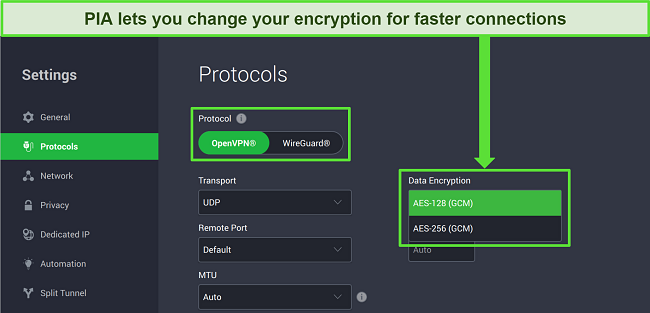
A service like Private Internet Access lets you lower your encryption in case you’re having slowdowns: you can change OpenVPN encryption from AES 256-bit to AES 128-bit. While there is a minor security tradeoff to doing this since AES-256 is more resistant to brute force attacks, it can help make sure your internet speeds are fast enough for a secure connection.
5. Use Obfuscated Servers
When you connect to a VPN server, it keeps your online activity anonymous but the connection contains signatures and metadata that identify your traffic as originating from a VPN. Obfuscation hides these cryptographic signatures so no one can see that you’re using a VPN. In other words, obfuscation makes your VPN connection look like regular internet traffic. This function is also often called “Stealth” or “Stealth Mode”.
Obfuscated servers also search for available ports to establish connections, avoiding the repetition of a single port. This minimizes the likelihood of encountering a connection obstacle since it’s improbable that websites and services scrutinize all ports for VPN connections.
ExpressVPN provides obfuscation on every server, and it kicks in automatically when VPN detection tech is detected. Other VPNs with obfuscation usually require you to configure your connection or adjust your VPN settings. This makes it a top choice for China, Russia, Turkey, the UAE, Saudi Arabia, and other countries with strict internet censorship because it’s main function is to allow VPN traffic on entire networks that block them. It’s also useful for accessing sites that are blocked on shared WiFi networks, like a school, work, or public WiFi hotspot.
Other options are Private Internet Access’s Shadowsock and SOCKS5 Multi-Hop connections. Both add an extra layer of encryption by routing your traffic through a proxy and disguising VPN metadata. However, they don’t work in China, and the extra server step slows the connection.
NordVPN has 100+ obfuscated servers around the globe. To connect to them, you need to first select the OpenVPN protocol in the settings. Like PIA, NordVPN’s obfuscated servers don’t work in China.
6. Get a Dedicated or Static IP Address
When you connect to a VPN, you’re assigned an IP address that is shared with other users connected to the same server. This makes it easier for sites like Netflix to block IP addresses, as multiple connections from a single IP address indicate a VPN or proxy.
Some VPNs like CyberGhost offer dedicated or static IP addresses that aren’t shared with other VPN users. These IP addresses can be added to your account for an extra monthly fee, and it only takes a few minutes to set up. You can even add the service through the desktop app, making it even more convenient.
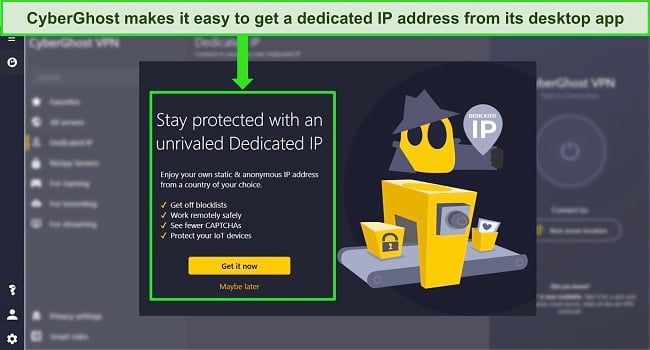
Even though you’re still connecting through a VPN with a dedicated IP address, sites that usually block VPNs (like streaming services) associate that IP with a single user. Since this is less suspicious, access to the sites is usually granted.
7. Reconfigure Your Port
Ports are often monitored to stop VPN connections, so changing your port can help make your VPN undetectable and access online services. Some VPNs will scan ports and choose different options to avoid detection, but you can also switch ports manually. There are a couple of ports that are typically not blocked, as these allow traffic to travel securely to sites:
- Port 443 — This port allows unencrypted traffic to reach a site securely. For example, when online banking or shopping, you’ll be directed to an HTTP version of the site, as this keeps your personal details private. As such, most websites won’t block this port.
- Port 80 — This port secures all HTTP sites and is used for encrypted traffic, so it’s rarely blocked.
Private Internet Access lets you change your connection ports manually and it’s easy to do, even if you’re new to VPNs. Just go to “Settings”, click “Protocols”, and enter a new port number in the Local Port box. You may have to try a few different ports to see which can overcome the VPN block.
If you can’t manually change your port, some Windows VPNs still support the Secure Socket Tunneling Protocol (SSTP), which uses port 443 by default.
While changing ports can work, it’s not a guaranteed way to bypass blocks. If a site or service wants to stop VPN activity, it’s likely they’ll also use other methods like Deep Packet Inspection (DPI) alongside port blocking.
8. Change Your DNS Settings
If you have some technical knowledge, you can try changing your DNS settings to get around ISP blocking. This way, you’ll no longer route your encrypted connection through your ISP’s DNS servers to avoid being blocked on this level.
I recommend using popular DNS servers like Google (8.8.8.8 or 8.8.8.4) or CloudFlare (1.1.1.1 or 1.0.0.1) — these servers have excellent uptime and won’t block your VPN connection. Manually changing your DNS settings is also useful if you want to reach a website blocked by your ISP, as this should be enough to allow access to the site.
However, you won’t get the protection of an encrypted VPN connection, so you should only visit sites that won’t compromise your data security. Changing your DNS also won’t help if the VPN block is due to DPI. To overcome these, choose a VPN with server obfuscation and DNS leak protection.
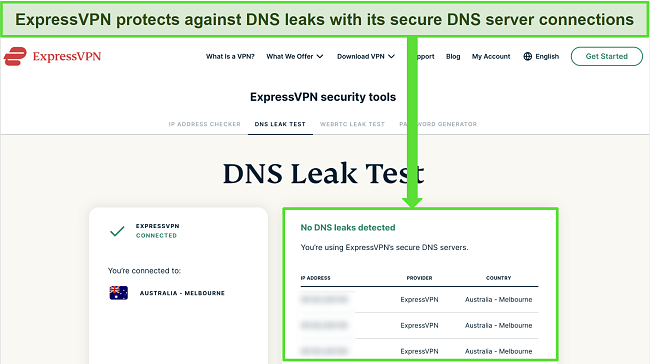
This ensures that not only is your VPN activity hidden through obfuscation, but you won’t experience any DNS leaks that cause your ISP to block your connection.
9. Use Your Mobile Data
Switching to mobile data can be useful when using a VPN at school or work — anywhere that imposes online restrictions for a private WiFi network. As these restrictions only apply to the organization’s network, connecting to the internet through mobile data allows you to avoid these blocks.
However, it’s important to remember that mobile data comes with its own restrictions, especially if you have strict data limits. Streaming, downloading, and online gaming will use up data very quickly. Plus, using mobile data by itself won’t let you access content in other locations, avoid DPI, or help you bypass censorship.
Provided you have a high cap or unlimited data, you can use mobile data with a VPN to securely access the internet. Most VPNs have mobile apps, so you can easily download a service like ExpressVPN to your smartphone or tablet for on-the-go privacy and anonymity.
10. Set Up a Manual VPN Connection
There are a few reasons to set up a manual VPN connection — perhaps your VPN’s app isn’t available for download where you live, or you can’t add the app to your device. Importantly, setting up a manual connection instead of the plug-and-play app may help make your VPN undetectable.
This may seem a little intimidating but fortunately, the setup process is straightforward:
- Check your VPN’s website for a list of server locations — this list will include the tunneling protocols they use, most often OpenVPN, WireGuard, or IPSec.
- Input your chosen server details into your setup app — this could be a third-party application or in-built support — your VPN should detail which platforms support different tunneling protocols.
- Enter your VPN account details, usually your username and password — you should be able to click “Connect” or “Activate” depending on your app, and establish your VPN connection.
If you find it’s necessary, I recommend using ExpressVPN as it has detailed guides for manual setup on its website.
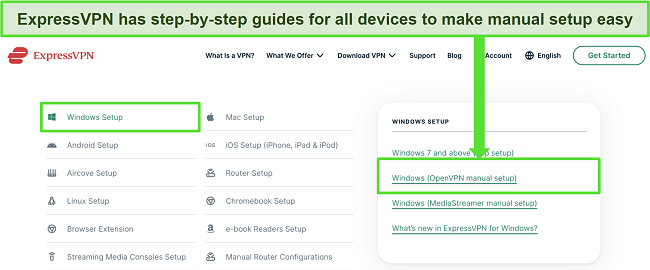
The issue with manually setting up a VPN connection is you don’t get the full benefits of using the VPN’s dedicated app. There’s no kill switch or dedicated leak protection, and you can’t quickly switch between servers — you have to manually set up each connection. For this reason, it should be a last resort to unblock your VPN.
11. Use a SOCKS5 Proxy
A SOCKS5 proxy uses the Secure Socket 5 protocol to send data through a remote proxy server. The SOCKS5 proxy masks your true IP address much like a VPN does to bypass blocks. Plus, SOCKS5 adds a layer of authentication that allows only the intended user to access the proxy. This makes it a good choice for fast and secure P2P file-sharing.
While the SOCKS5 proxy uses authentication, it doesn’t provide any connection encryption like a VPN would. It can also be a costly option to set up and operate.
Fortunately, several VPNs support SOCKS5, so you don’t have to configure it yourself. I recommend you use PIA’s SOCKS5 proxy and Shadowsocks, as they’re built specifically to bypass tough restrictions and are included with every subscription plan.
12. Use the Tor Browser (AKA The Onion Router)
Tor (also known as The Onion Router) is a browser that lets you browse the web anonymously. After connecting through an entry point, Tor sends your data through 3 different servers or “nodes” before it reaches your intended destination.
Your data is wrapped in several layers of encryption, with a layer removed as it passes through each server until the end-point is identified. This makes it extremely difficult to trace the online activity back to you and makes it easier to access blocked content.
Tor is designed more for anonymity than privacy, and since exit nodes are under heavy surveillance, it’s possible for anyone watching to intercept your unencrypted data. Tor browser is also blocked in many countries, like China, Russia, and Iran, meaning it isn’t always accessible without the help of a VPN.
It’s best to connect to a high-quality VPN before launching Tor to fully encrypt your data (even at exit points). This method is known as “Tor Over VPN.” Connecting to Tor with a service like ExpressVPN ensures you get the fastest speeds, as Tor is known for slowing internet connections — it’s no good for streaming or P2P file-sharing.
NordVPN is another VPN that supports Tor over VPN connections. It has 3 dedicated servers — 2 in the Netherlands and 1 in Switzerland.
13. Change Your SSH and SSL/TLS Tunnel
SSH and SSL/TLS are 2 kinds of tunnels that both use encryption to secure your data and allow you to bypass content blocks. Through encryption, these tunnels can help mask your connection to avoid VPN-specific blocks. Here’s a little more detail about how they work individually:
- SSH — uses local port forwarding to encrypt your VPN connection and route your traffic through another device like your home computer from your office laptop. This lets it slip through blocks undetected. It’s used by many different applications, including file-sharing through FTP, so it’s rarely blocked. However, it’s much slower than a standard ISP or VPN connection, so it’s not a good choice for streaming or downloading content.
- SSL/TLS — tunnels used for encrypted data and represent the “S” you see at the end of “HTTPS” for secure websites. As these tunnels are essential for the proper function of secure sites, they’re hardly ever blocked. As such, they’re a good way to disguise your VPN connection and allow you to access blocked content.
There are some premium VPNs like ExpressVPN that support SSL/TLS tunnels, but you also have the option of manually configuring a tunnel if you have some technical knowledge.
The Best VPNs to Remain Undetected Online (Tested in 2025)
1. ExpressVPN — #1 VPN to Avoid Detection With Obfuscation on All Servers
Key Features:
- Global network of 3,300+ servers in 105 countries
- Military-grade encryption, leak protection, kill switch, and audited zero-logs policy
- Connect a maximum of 8 devices simultaneously
- 24/7 live chat, email support, online knowledge base, and FAQs to answer questions
- All plans come with a 30*-day money-back guarantee
ExpressVPN uses obfuscation across its entire server network to remain undetected. Each server can identify if a network is using DPI to block VPN connections, and if it is obfuscation kicks in automatically. It also regularly refreshes its IP addresses to prevent blacklisting by popular sites. I tested 15 of its global servers and all worked with online platforms that usually block VPN traffic.
ExpressVPN uses military-grade AES 256-bit encryption to secure your traffic and prevent online spying, plus protects your data with the following features:
- Perfect Forward Secrecy — changes your encryption keys regularly so your data won’t be compromised.
- IPv4, IPv6, DNS, and WebRTC leak protection — proven to work with zero leaks during tests.
- Network Lock — disables the internet if your device loses connection to the internet to prevent accidental leaks.
- Tor over VPN connection — adds another layer of encryption to your Tor traffic to hide your identity on the dark web and the internet.
- Threat Manager — stops the sites you visit from collecting your data and targeting you for advertising.
Obfuscation typically slows down connection speeds due to the encryption. But I found ExpressVPN extremely fast, even when my data had to travel longer on servers 9,000+ miles away. There was no buffering or lags while I downloaded torrents or played online games. I had the best performance with the Lightway protocol as it mitigated delays caused by high-level encryption.
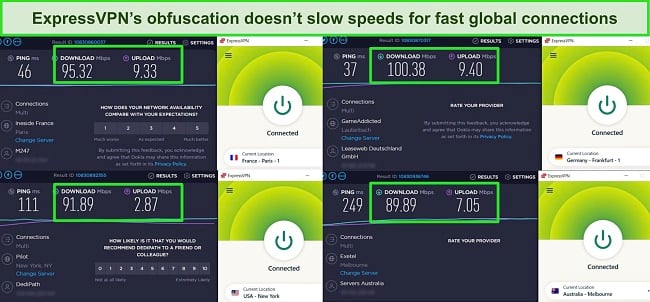
If you need to use a protocol other than Lightway to bypass a block, it’s easy to switch within the app. All you have to do is go to the menu bar on your app, select “Preferences”, and click “Protocols” for the options available. This is useful if you want to use a TCP connection for the Tor browser or IKEv2 for mobile devices.
Since ExpressVPN is a premium VPN, you’ll notice it’s pricier than others. But its obfuscated servers and reliable access to content make ExpressVPN worth the price. Its latest offer has a huge % discount on the 2-year plan, so you can sign up for just a month.
If you’re not satisfied, you can get a full refund. As a new subscriber, you’re protected by a 30*-day money-back guarantee, allowing you to try every ExpressVPN feature risk-free. When I tested the process, it took only minutes to get my refund approved over 24/7 live chat. Best of all, I had my money back in just 5 days.
Editor’s Note: Transparency is one of our core values at WizCase, so you should know we are in the same ownership group as ExpressVPN. However, this does not affect our review process, as we adhere to a strict testing methodology.
ExpressVPN is compatible with: Windows, macOS, Android, iOS, Linux, Chrome, Firefox, Android TV, Amazon Fire TV, Amazon Fire Stick, PlayStation, Xbox, Nintendo Switch, routers, and more.
ExpressVPN works with: Netflix, Disney+, Hulu, Amazon Prime Video, Vudu, Max, BBC iPlayer, Sky Go, Peacock TV, YouTube TV, Kodi, ESPN, DAZN, and more.
2025 Update! You can subscribe to ExpressVPN for as low as per month with a 2-year purchase (save up to %)!! This is a limited offer so grab it now before it's gone. See more information on this offer here.
2. CyberGhost — Optimized Servers Overcome VPN Blocks and Access Platforms on the First Try
Key Features:
- Network of 9,757+ servers in 100 countries, plus optimized servers
- Military-grade encryption, leak protection, kill switch, and zero-logs policy
- Use on 7 devices at the same time
- 24/7 customer support through live chat and email
- Long-term plans have a 45-day money-back guarantee
CyberGhost has an optimized network for streaming and torrenting, plus gaming on Windows apps. These specialized servers are tested frequently to make sure they can’t be detected by firewalls and other technologies that block VPNs.
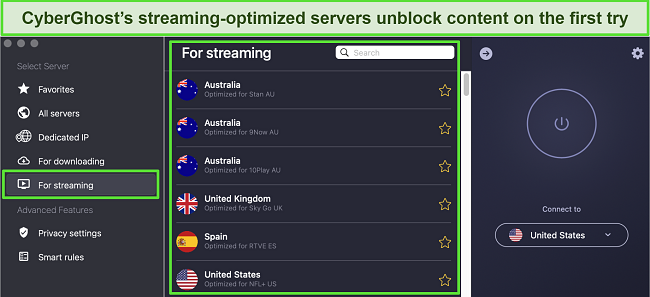
During tests, I made multiple video calls on WhatsApp using local servers and only noticed a 16% decline from baseline speeds. This is second only to ExpressVPN. The high-speed connections made sure my calls never dropped midway, and both the audio and video qualities were excellent throughout.
For a small fee, CyberGhost offers dedicated IP addresses in 5 countries including the US and UK. With an exclusive IP address that no one else can use, you can avoid IP blocks that may stop connections from CyberGhost’s servers. It’s useful if you don’t want your accounts to be flagged for suspicious activity or unknown login locations.
CyberGhost also makes your traffic undetectable to third parties with:
- 256-bit encryption — prevents third parties from spying on your connections and activities.
- RAM-based servers — delete your online activities with every reboot to protect your privacy.
- Auto-connect — starts a VPN connection automatically upon powering up your device to avoid being blocked by certain platforms.
- Automatic kill switch — prevents data leaks if the VPN connection is lost by disconnecting the internet temporarily.
Unfortunately, CyberGhost doesn’t have server obfuscation features to bypass methods like DPI, so it can’t always get around tough restrictions like China’s Great Firewall. However, it works with workplace and school networks that often block certain sites.
Although CyberGhost has a monthly plan, you’ll get better value for money on its long-term plans since they include a 45-day money-back guarantee. Plus, the 2-year subscription is only a month.
Editor’s Note: Transparency is one of our core values at WizCase, so you should know we are in the same ownership group as CyberGhost VPN. However, this does not affect our review process, as we adhere to a strict testing methodology.
CyberGhost is compatible with: Windows, macOS, Android, iOS, Linux, Chrome, Firefox, Android TV, Amazon Fire TV, Amazon Fire Stick, PlayStation, Xbox, routers, and more.
CyberGhost works with: Netflix, Disney+, Hulu, Amazon Prime Video, Vudu, Max, BBC iPlayer, Sky Go, Peacock TV, YouTube TV, Kodi, ESPN, and more.
3. Private Internet Access (PIA) — Massive Server Network Makes Avoiding VPN Blocks Simple
Key Features:
- Huge global network of 35,000+ servers in 91+ countries
- Military-grade encryption, leak protection, kill switch, and zero-logs policy
- Allows unlimited simultaneous connections
- 24/7 customer support with live chat, FAQs, and knowledge base
- 30-day money-back guarantee on all plans
PIA has an enormous network of over 35,000 servers worldwide, making it easy to bypass blocks. Many of PIA’s servers are spread across the US, so it’s a top choice for accessing US content. Sites like Netflix US, Hulu, and Amazon Prime Video are all compatible with PIA.
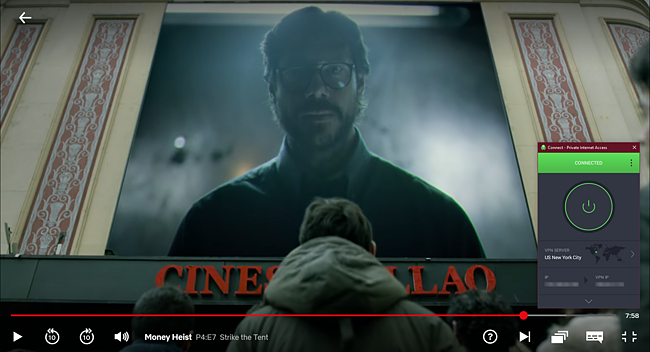
It uses OpenVPN and WireGuard for most of its apps, with IPSec available on iOS. These protocols are known for speed and security, even though OpenVPN is heavily targeted by VPN blockers. Fortunately, PIA provides several OpenVPN port options, making it less likely for sites to detect your connection.
To further hide your VPN usage, PIA offers:
- Dedicated IP addresses — get your own IP address for an extra monthly fee to avoid triggering VPN detection.
- Customizable encryption — lets you select between 256-bit and 128-bit connections depending on your online activity.
- Advanced kill switch — prevents your internet from reconnecting before the VPN connection is restored.
I also tested PIA’s Shadowsocks proxy, a multi-hop feature that adds a layer of encryption for additional security and obfuscates the server to avoid DPI detection. Shadowsocks successfully kept my VPN connection hidden, but it significantly slowed down my speeds — it dropped from 115Mbps to 45Mbps.
That said, PIA has some of the lowest prices you’ll find for a premium VPN service — it’s one of the best VPNs for affordable month-to-month plans. But I recommend you sign up for the 2-year plan as it’s more cost-effective in the long run at per month.
You can try PIA risk-free with its 30-day money-back guarantee. When I requested a refund, the 24/7 live chat agent asked me to troubleshoot any issues. I repeated my refund request and the agent promptly processed it, with the money back in my account in 4 days.
Editor’s Note: Transparency is one of our core values at WizCase, so you should know we are in the same ownership group as Private Internet Access. However, this does not affect our review process, as we adhere to a strict testing methodology.
PIA is compatible with: Windows, macOS, Android, iOS, Linux, Chrome, Firefox, Android TV, Amazon Fire TV, Amazon Fire Stick, routers, and more.
PIA works with: Netflix, Disney+, Amazon Prime Video, Vudu, Sky Go, Peacock TV, YouTube TV, Kodi, ESPN, and more.
4. NordVPN — Selected Obfuscated Servers Prevent VPN Detection and Blocking Worldwide
Key Features:
- 7,287+ servers in 118 countries, including 100+ obfuscated servers
- Military-grade 256-bit encryption, NordLynx protocol, a kill switch, a no-log policy
- Stay hidden in up to 10 devices
- 24/7 live chat assistance, email support, and an online knowledge base
- All plans allow refunds within 30 days
NordVPN offers over 100 obfuscated servers across 10+ countries to help you stay hidden online. While they may not bypass China’s Great Firewall, they are efficient at concealing your online activity from ISPs. During my tests, the servers in Singapore and Spain also circumvent firewalls, especially on WiFi networks in schools and workplaces.
With NordVPN, you can route your traffic through TCP port 443 with the OpenVPN protocol. By doing this, NordVPN masks your VPN traffic as standard HTTPS traffic, a common encryption method for most websites. This makes detecting and blocking NordVPN more challenging for ISPs and network administrators. Additionally, NordVPN has:
- Onion over VPN servers in the Netherlands and Switzerland — combines the best of both Tor and VPN to make online detection significantly harder.
- Dedicated IP servers — offer a consistent and unique IP address, reducing the likelihood of being flagged or blocked due to shared VPN activity.
When I tested its local servers, NordVPN delivered good speeds. For instance, downloading a 2GB torrent took just 15 minutes, whereas other VPNs typically took over 25 minutes. Distant servers were slower as expected, but they were still fast enough for lag-free streaming.
The only problem is that the VPN might share data with foreign governments if requested. But I wouldn’t worry because NordVPN enforces a rigorously audited no-log policy and uses RAM-based servers so that no identifiable data is permanently stored on its system.
You can get NordVPN for just a month with the 2-year + 3 months plan. Since it comes with a 30-day money-back guarantee, it’s risk-free. I tested the guarantee by requesting a refund via live chat. The process took less than 5 minutes and I got my money back in 5 days.
NordVPN is compatible with: Windows, macOS, Android, iOS, Chromebook, Linux, Chrome, Firefox, and more.
NordVPN works with: Netflix, Amazon Prime Video, BBC iPlayer, Hulu, Disney+, Max, DAZN, ESPN, and more.
5. Surfshark — Camouflage Mode Bypasses Content Filtering by Hiding Traffic
Key Features:
- 3,200+ servers in 100 countries
- Military-grade 256-bit encryption, Camouflage Mode, and a kill switch
- 24/7 live chat, email support, and online guides
- Secure unlimited devices simultaneously
- Includes a 30-day money-back guarantee on all plans
Surfshark has a Camouflage Mode to avoid detection and bypass restrictions. It automatically removes the tell-tale signs of VPN traffic when you connect using OpenVPN (UDP or TCP) protocols. It didn’t work in China during tests but did great on networks that commonly block VPN traffic (like schools and offices).
Additionally, Surfshark allows you to connect to 2 different servers for double encryption. This provides an extra layer of security when you want to be sure no one can see your online activities. Unlike NordVPN’s Double VPN feature, Surfshark allows you to select your own 2 server locations.
Using the regular global servers over 3,000 miles away from me, I noticed that my speeds never dropped below 61Mbps. This is great for UHD streaming, torrenting, and gaming without interruptions.
One thing I struggled with Surfshark is that connecting to a server can take a while, especially when it’s far away. On my macOS device, it was less than 5 seconds. But on my Windows computer, it could sometimes take longer than 30 seconds. Fortunately, after the initial delay, subsequent connection attempts were faster and I could access content within 3 seconds.
I recommend the 2-year + 3 months plan as your monthly payments will be lesser at just . But not to worry, all its plans come with a 30-day money-back guarantee, so you don’t risk your money if you don’t like it. It’s also easy to get a refund — just send a message via live chat. An agent attended to me within a minute and the money was back in my account in 6 days.
Surfshark is compatible with: Windows, macOS, Android, iOS, Linux, Chrome, Firefox, and more.
Surfshark works with: Netflix, Amazon Prime Video, BBC iPlayer, Hulu, Disney+, Max, and more.
Why Do VPNs Get Blocked?
1. Government Regulations
Places like China, Russia, and Turkey block citizens from visiting sites that don’t support the country’s culture, and block the use of VPNs that would allow access to foreign content. Usually, this is under the guise of safety and morality and includes popular sites like YouTube, social media, gambling sites, and adult content.
Due to these restrictions, residents and tourists in these countries regularly use VPN connections to anonymously access sites. However, it’s important to remember that using a VPN doesn’t make it legal to visit restricted or illegal sites. You could face a government fine or have certain accounts banned if you’re found using a VPN.
2. Copyright and Licensing Agreements
Streaming services like Netflix, Hulu, and BBC iPlayer block VPNs and proxies due to copyright agreements. These services purchase licenses that allow them to broadcast content in specific locations — but not in all countries.
For example, you may have noticed your Netflix account doesn’t have the same content as other regions. To uphold copyright regulations, Netflix detects and restricts VPN connections so you can’t watch shows from other countries (but you can still access Netflix Originals content that it owns the rights to).
3. Enforcement of the Digital Millennium Copyright Act
Some ISPs block VPNs to prevent downloading torrents for copyrighted content. If an ISP detects illegal torrenting, it can restrict your internet speeds or even send a Digital Millennium Copyright Act infringement notice.
I don’t condone torrenting copyrighted material, which is still illegal under the protection of a VPN. Make sure you’re aware of local laws and regulations before torrenting.
4. School and Workplace Restrictions
Firewalls at schools and workplaces stop people from accessing distracting or inappropriate content, including social media, streaming sites, online casinos, and adult content. These organizations also prohibit VPN usage, since a VPN can help you access this content.
Network administrators may want to monitor your browsing habits, which becomes impossible if the connection is encrypted by a VPN. The only way to keep online activity private while connected to these networks is to use a VPN with obfuscated servers like ExpressVPN. Server obfuscation makes a VPN connection look like regular traffic, keeping your browsing anonymous.
5. Fraud and Illegal Activity Prevention
Some online services also block VPNs as a preventive measure against illegal and dishonest behaviors like:
Financial services — block VPNs since they can’t verify that it’s you accessing your account when your real IP address is hidden. The VPNs on this list have split tunneling feature which lets you bypass encryption for your banking apps.
Online casinos — stop users from connecting with a VPN to cheat or commit fraud. The site may shut down your account and forfeit your funds for using a VPN to access their platform.
Gaming platforms — prevent users from buying games at a lower price in another region or accessing geo-restricted content. However, using a VPN while gaming is sometimes necessary to prevent DDoS attacks and other risks arising from exposed IP addresses.
3 Types of VPN Blocks
1. IP Address Blocks
When you connect to a VPN, your true IP address is replaced with one from the VPN’s server. These addresses are shared amongst all users connected to that server. Unfortunately, shared IP addresses make it easier for services like Netflix, Hulu, and Amazon Prime Video to identify as a VPN connection.
It’s also one of the main methods used by China’s Great Firewall. If you connect to your VPN and try to visit a site with a shared IP address, you may find that you’re blocked from accessing the site’s content.
2. Port Blocking
All internet traffic is sent through ports, which are virtual communication points that help computers and servers identify and sort the traffic they receive. The type of information sent will determine the port used. For example, HTTPS typically uses port 443, and OpenVPN traffic uses port 1194.
This means firewalls can actively monitor port 1194 (and other ports that typically communicate VPN traffic) and block any encrypted connections. Fortunately, getting around this VPN block is as simple as reconfiguring your port and selecting a different option.
3. Deep Packet Inspection (DPI)
DPI is an advanced method of VPN detection that examines the type of traffic you’re sending, rather than the source of the traffic (like your IP address).
The data sent and received online is broken down into smaller units called “packets” that consist of 2 parts: the “header” and the “payload.” Standard packet inspection just looks at the header, which includes information like your IP address (or the VPN’s IP address).
DPI looks at the payload and searches for unique signatures used by protocols like OpenVPN that make your traffic identifiable as VPN traffic. This means sites and services using DPI can tell that your traffic is encrypted and block it.
This kind of inspection is very difficult to bypass and it’s one of the main methods used by China’s Great Firewall to block encrypted VPN connections. However, a service like ExpressVPN uses server obfuscation to make your traffic appear as regular internet traffic even when DPI is used.
4. Quality of Service (QoS) Filtering
QoS filtering organizes internet traffic by prioritizing some data over others. For example, ISPs use this to ensure smooth performance, but sometimes they might throttle (slow down) VPN traffic. This is because VPNs can mask high-bandwidth activities, like streaming, which ISPs aim to regulate. China also uses QoS filtering to slow down restricted connections until they time out.
FAQs About Undetectable VPNs
Is it legal to bypass VPN blocks?
It depends on what kind of restriction you want to get around. If you use a VPN to access your local content on Netflix while traveling, it’s not illegal. But it does technically goes against the service’s Terms of Service, which could result in a ban (although it’s unlikely). Connecting to a VPN to bypass government restrictions or censorship could very well be illegal, and the penalties for this can be severe.
In most countries and cases, it’s legal to use an undetectable VPN to encrypt your connection and protect your personal data. However, I don’t condone using a VPN for illegal activities. Make sure you’re aware of your local laws and regulations before connecting to a VPN service.
Which is the best undetectable VPN?
ExpressVPN is the best undetectable VPN, as all its servers are obfuscated automatically. Plus, it regularly updates its IP addresses to remove any that may be blocked and adds new, fresh ones. It’s so good at hiding VPN traffic that it’s one of the very few VPNs that works in the most restrictive country, China.
Can a VPN bypass blocks on Android or iPhone?
Yes, any of the best undetectable VPNs can bypass blocks on your phone or other mobile device. These VPNs all have mobile apps that you can download to your phone, offering the same high-level encryption and security features as the desktop versions — including military-grade encryption, server obfuscation, and dedicated IP addresses.
It’s important to note that some mobile VPN apps have a limited selection of connection protocols, which can hinder your ability to bypass blocks. For this reason, I recommend you choose a service with multiple protocols like ExpressVPN — it supports Lightway, OpenVPN, and more, giving you a range of options if one is blocked.
Will my ISP find out that I’m using a VPN?
It depends. A quality VPN like ExpressVPN uses obfuscation to make encrypted traffic look standard, hiding the signature from your ISP and preventing it from being blocked.
A low-quality VPN won’t be able to properly mask the unique cryptographic signature that tells your ISP it’s a VPN connection. However, even if your ISP can see you’re using an encrypted connection, it can’t automatically tell you’re using a VPN.
Most ISP services don’t keep a log of IP addresses associated with VPNs, so it’s unlikely that it will know you’re using a VPN server connection.
Does a VPN make you untraceable?
To an extent, yes. Any of the VPNs I’ve recommended can help hide your online activity, but none of them can make you completely untraceable. A VPN protects you from being tracked, encrypts your data and online activity to thwart hackers, and helps avoid network restrictions. Some can even stop targeted ads. But there are other ways you can expose yourself online that a VPN can’t help with:
- Cookies are collected and stored when you’re browsing online
- Logging into social media and posting about yourself
- Making online purchases with your name and providing other details
- Apps that ask for permission to share certain information directly from your device
In short, a VPN helps boost and maintain your online privacy, but it won’t make you 100% anonymous.
Could Netflix ban me from using a VPN?
Netflix is unlikely to ban you from using a VPN, although it may stop you from connecting to the site while your VPN is active. Even the best VPN services on the market can’t always access Netflix due to its detection technology. Still, using a VPN to stream content only available in other locations goes against Netflix’s Terms and Conditions:
You also agree not to: circumvent, remove, alter, deactivate, degrade, or thwart any of the content protections in the Netflix service.
While Netflix lists account termination as a possible consequence for this prohibited behavior, there have been no reports of Netflix banning accounts for using a VPN to date.
Can a firewall block a VPN?
Yes. Schools, workplaces, and governments can configure local and nationwide firewalls to detect and block VPN connections. However, it’s easy to fix when you use an undetectable VPN. You can also try to reconfigure your port or change your VPN’s tunneling protocol.
Can I get around blocks with a free VPN?
While there are some reliable free VPNs out there, these won’t get around all blocks. You need advanced features like multiple tunneling protocols, regular IP address refreshes, a variety of server connections, and obfuscation — tools that only premium VPNs have.
Without the security features above, a free VPN is easily detected and blocked. Shady-free VPNs may promise to unblock popular sites but don’t have basic features like a kill switch or a zero-logs policy, which puts your data security at risk. I recommend that you use a premium VPN to get around blocks, as this ensures your online privacy and security while bypassing restrictions.
Browse the Web Freely With an Undetectable VPN
An undetectable VPN offers many benefits. It improves your online security through encryption to prevent hackers and spies from abusing your information. Plus, it lets you use the internet freely and access all your online services no matter where you are. When a VPN is undetectable, you maintain your online privacy.
Some VPNs are easily detected, which is why I tested 30+ services. I recommend ExpressVPN because it works to keep your VPN connection undetectable without manual configurations. All its servers are obfuscated to work with the strictest platforms and restrictive networks. You can try ExpressVPN risk-free as it’s backed by a 30*-day money-back guarantee.
*Please note that ExpressVPN’s generous money-back guarantee applies to first-time customers only.
Summary — Best Undetectable VPNs in 2025
Editor's Note: We value our relationship with our readers, and we strive to earn your trust through transparency and integrity. We are in the same ownership group as some of the industry-leading products reviewed on this site: ExpressVPN, Cyberghost, Private Internet Access, and Intego. However, this does not affect our review process, as we adhere to a strict testing methodology.


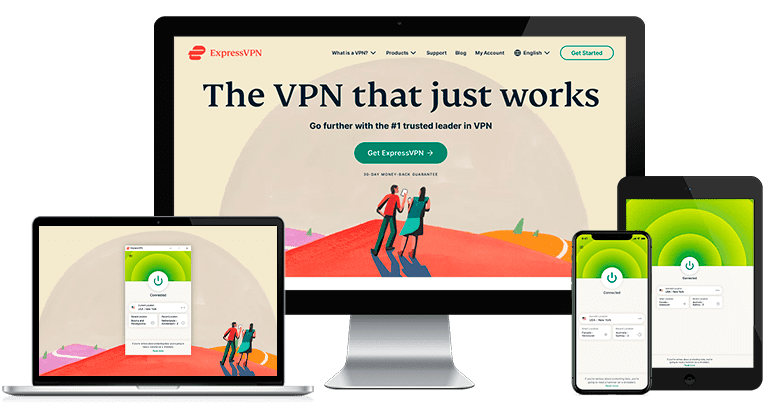
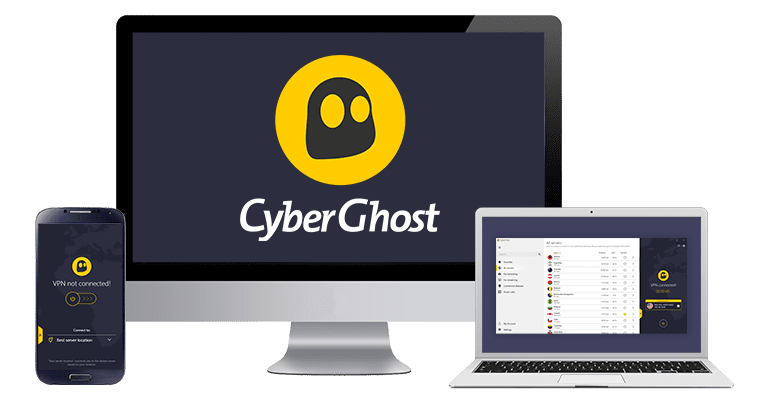
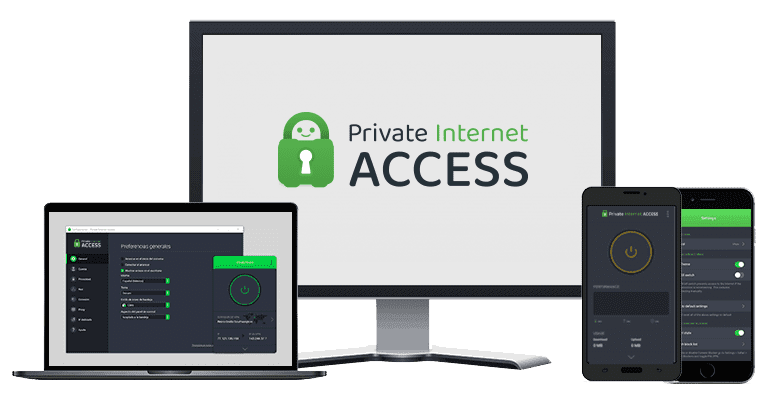

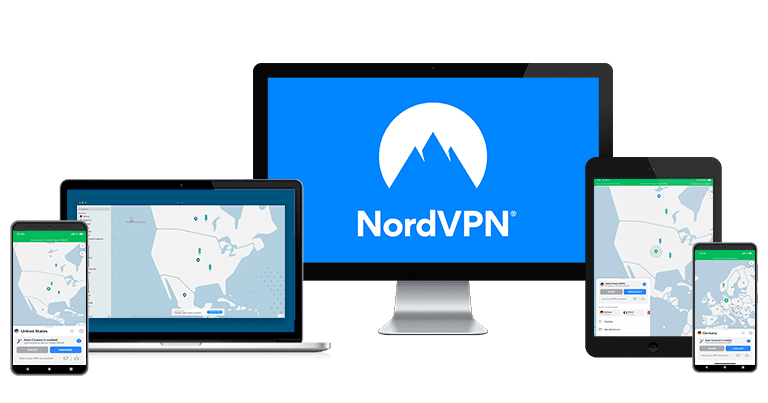

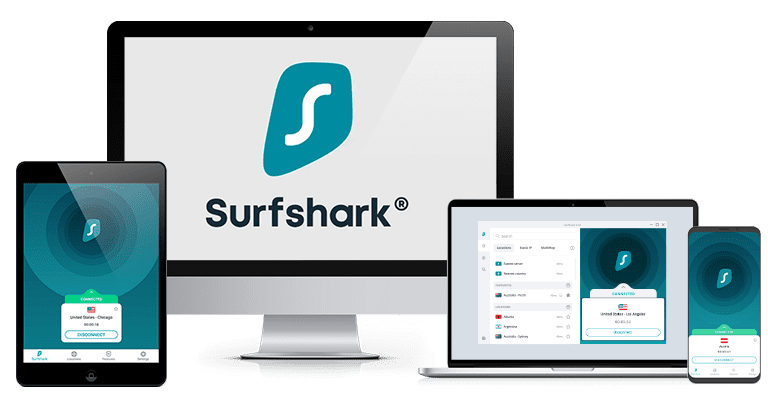
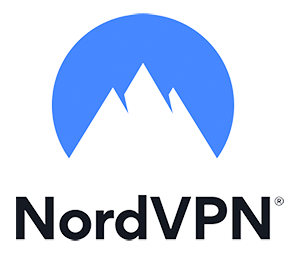




Leave a Comment
Cancel